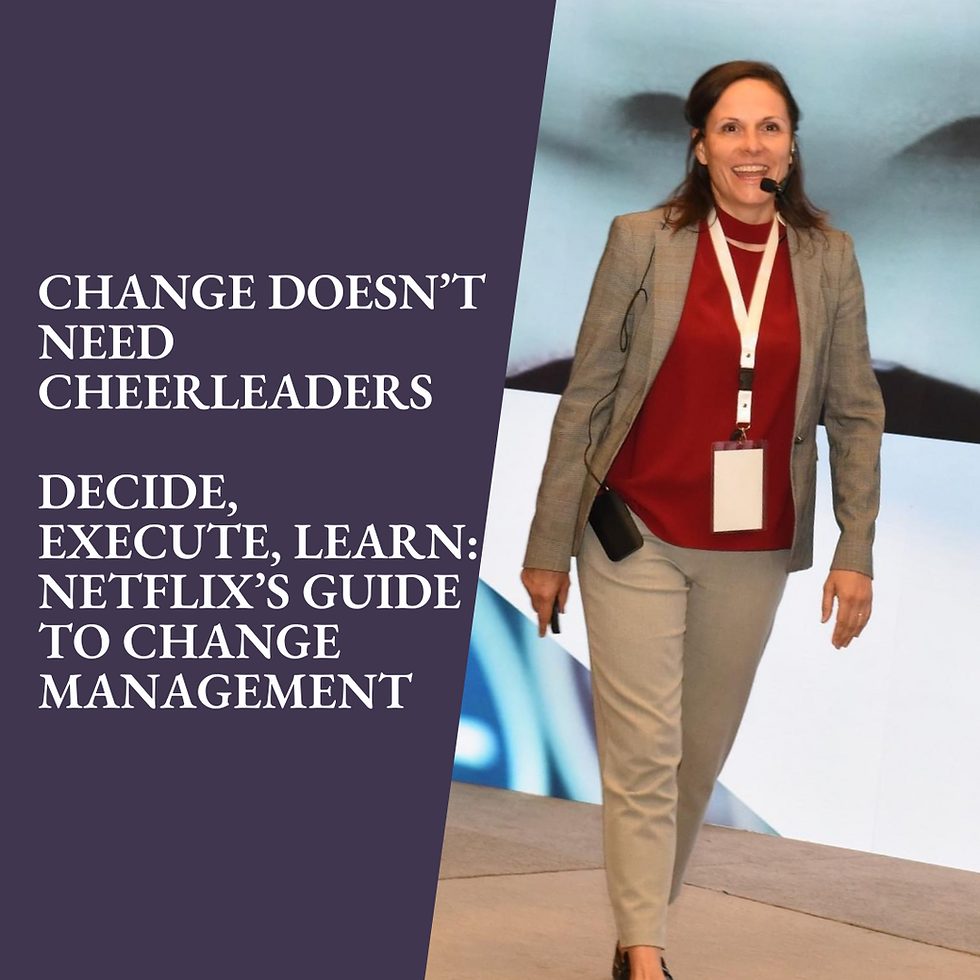The Downward Spiral of Hospitality Talent Pool
- Szilvia Olah

- Mar 5, 2023
- 4 min read

Now, change the word men to leaders, and that's where we are today. I know you don't like to hear this, but to solve a problem, we must first face it.
You know that your industry is in a pickle when your CEOs are all over social media attracting and retaining talent. They went from dealing with real estate owners and banks to public relations and pleading to talent.
However, this propaganda doesn't work as talents are seeing through it, they know that any action at this point is self-serving. Talent is democratised, and they have cast their votes by leaving and staying away.
This has been brewing for decades, so we shouldn't be surprised by the current state. We had been riding the gravy train, but this journey had ended. We made no efforts to change old-school practices and have ignored the loud few who spoke for the silent mass. We have locked ourselves away from every change related to people and eventually distanced ourselves from those who are passionate and competent.
As a result, we ended up in a vicious cycle of filling positions with a pair of hands who could do an ok job. We chased away competent managers and leaders who were the foundation of our success in terms of guiding and preparing the next generations. Look around who is running the industry. 20-30 something-year-old directors and VP with no ability to manage people, which is the key to our failings. When I was a director in my 30s, I needed my 40+-year-old hotel manager or 50+-year-old GM to guide me, coach and mentor me, or just sometimes put me straight back in my place. This is how we teach about people management. The other day a GM approached me to work with her, she is in her 30s. I was like, nah, I cannot spend another two years of my life trying to guide a person who is senior to me.
We misunderstood the message of a dynamic and diverse environment and recruited young inexperienced people (often playing the gender tokenism game) to crucial roles that hindered progress on all fronts. As Peterson said, "Hire stupidly and put people in positions where not only do they fail painfully, over a long period of time, but they compromise the performance of everyone around them while doing so."
Another part of our downfall is the structure we have created in order to retain people. Promotion after promotion after promotion led to managers managing managers managing managers led by leaders leading leaders. Who does the job? We have retained inactive and unproductive people to support the operation, but nothing is left to support, so managers are doing the same job as their line staff. This puts strain on them, and burned-out tired managers will produce poor quality of work and team morale.
So how do we fix this problem? Well, you are in the eye of the storm, so don't expect it to have a quick solution.
The first step is to stop with the marketing campaign"come and work with us because of our values, food in the canteen, diversity agenda, and here you can be who you are." Nobody cares about these as long as we don't address:
· Long working hours
· Low wages
· Structure that doesn't serve the organisation's needs
· Poor leadership
· Old-school operational practices
· Old-school people-related practices
The second step is to address those and be unapologetically serious about them. Put your big boy/girl pants on and:
· Follow strict working hours. Draw the line and show your teams you are serious about the change. It will pay off in the long term. Temporarily, hire casuals to ease the pain on your permanent team. Once they get a breather and as new people join the team, they will want to stay in a calm and organised environment where they are not made to work for 1.5 people.
· Pay people what they are worth and align it with long-term investment. Stop thinking short term. This is what led us here! This has to be a fight at the corporate and GMs level. It is up to you really where you draw the line.
· Get rid of your ridiculous hierarchy. You don't need a director and a manager on a team 4:-) Invest that money on roles that produce the cash, HK, waiters, receptionist etc... Operational staff.
· Don't mess about when it comes to selecting your managers and leaders. If they don't fit, let them go. Don't promote to retain because it is easy or much cheaper. Get the best who can manage people! Paying for great leaders pays off. As my grandma used to say, "save on the food, and you will spend all your saving on medicine".
· Re-look at practices and change. We do a lot of labour-intensive nonsense in our operations and make no difference to what we want to achieve. These are: courtesy calls, having a phone at the reception desk, having a reception desk, morning briefings, 100s meetings, MOD shift and so on. If you cannot see them call in an external person or ask your team. They will tell you what makes no sense.
· Review people's practices. In fact, scratch everything HR does in the hotel industry and start again. Think again! There are much better ways of managing people and their performance than what we do today.
The third step is to start advertising how different you are NOW! Not before you are actually making a difference because this caused the loss of trust and talent and led us where we are.
.png)



Comments